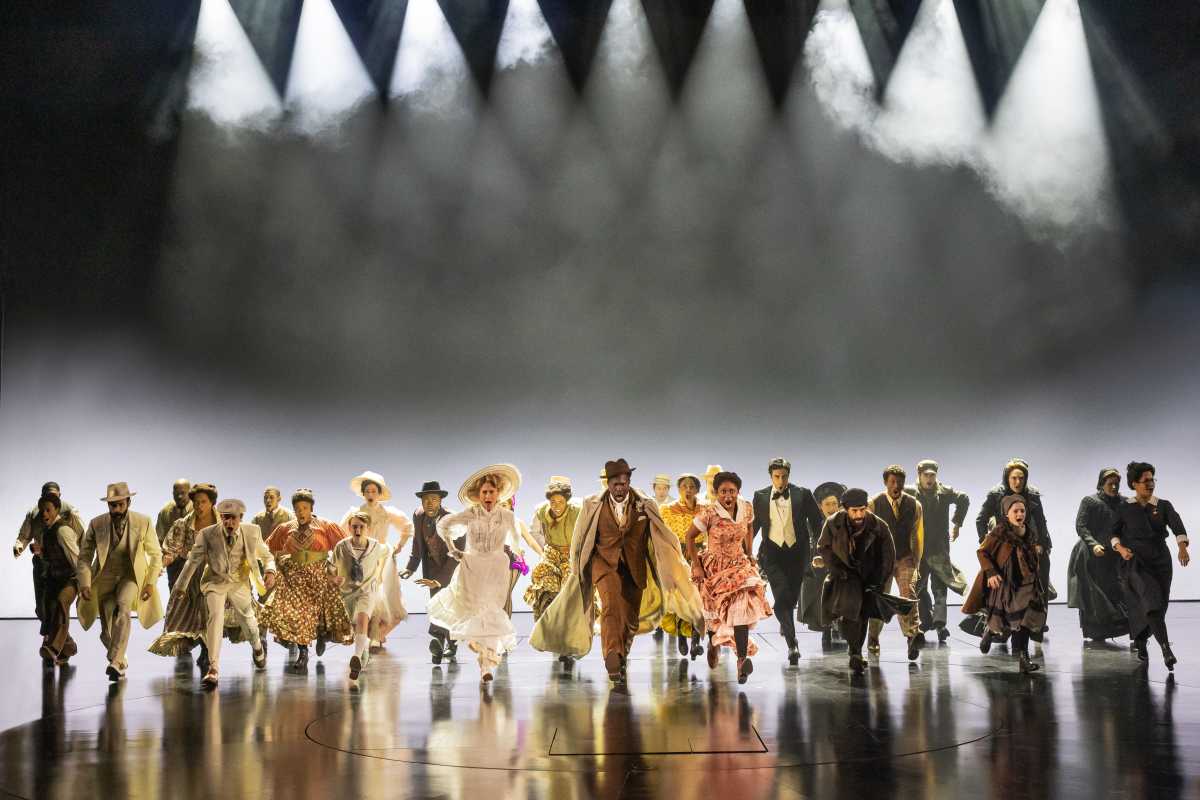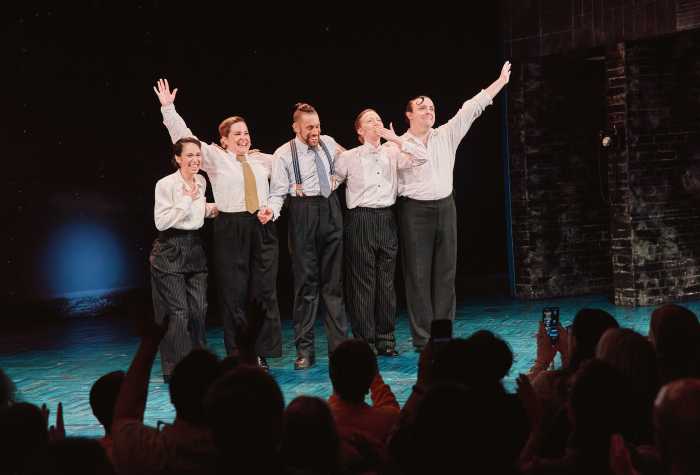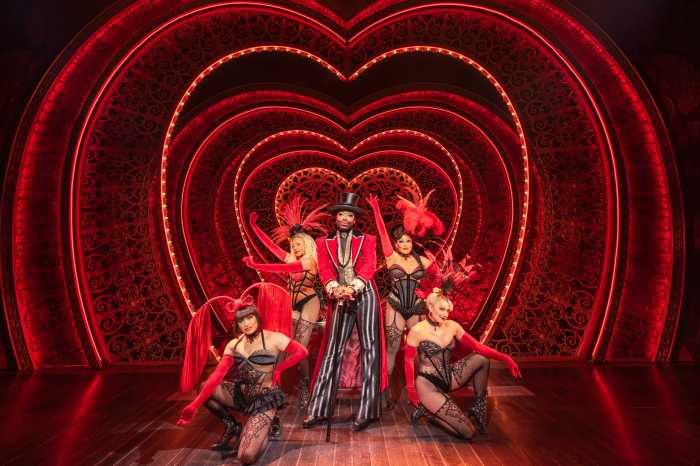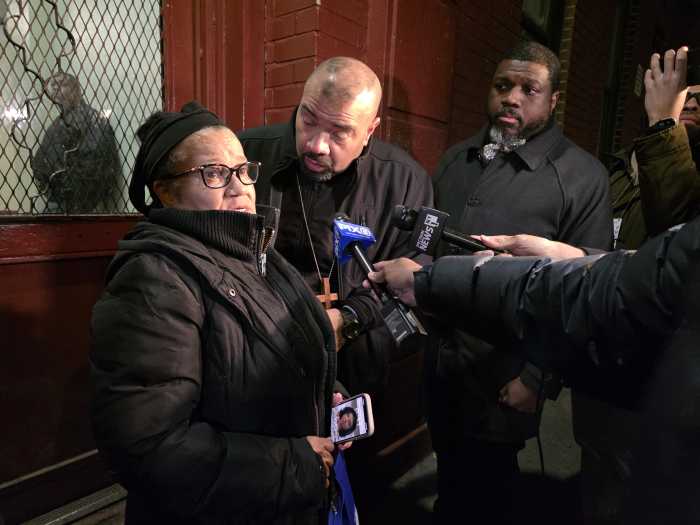At a moment when the country feels fractured and uncertain, “Ragtime” returns to Broadway like a clear, defiant anthem—a reminder that America has been here before.
Twenty-five years after its original run, the musical roars back not with spectacle but with purpose, and in doing so, it may finally have found the moment it was meant for. This revival, now at Lincoln Center’s Vivian Beaumont Theater and expanded from last year’s high-powered City Center concert staging, arrives not as nostalgia but as a galvanizing statement, both thrilling and newly vital.
Set in the early 1900s, “Ragtime” intertwines the stories of three families whose lives converge amid the upheaval of a changing America: a wealthy white household from New Rochelle; a Black pianist, Coalhouse Walker Jr., and his beloved Sarah; and a Jewish immigrant, Tateh, struggling to survive with his daughter on the Lower East Side. Their journeys of hope, injustice, and transformation unfold against a backdrop of industrialization, racial violence, and the birth of mass media, as historical figures such as Booker T. Washington, Emma Goldman, and Henry Ford weave through their paths.
Lear deBessonet, beginning her tenure as Lincoln Center Theater’s new artistic director, directs with clarity, confidence, and compassion. She keeps the production grounded, letting the story and performances carry the emotion more than the staging. Her visual language is simple but striking: the transitions between New Rochelle, Harlem, and the Lower East Side glide so fluidly that the show often feels as if it’s materializing from memory, as the past is reassembled before our eyes. The pacing is brisk and the tone direct, balancing sweep with intimacy. The choreography gives the ensemble a constant sense of motion and urgency, while the skeletal scenic design and projections evoke changing landscapes.
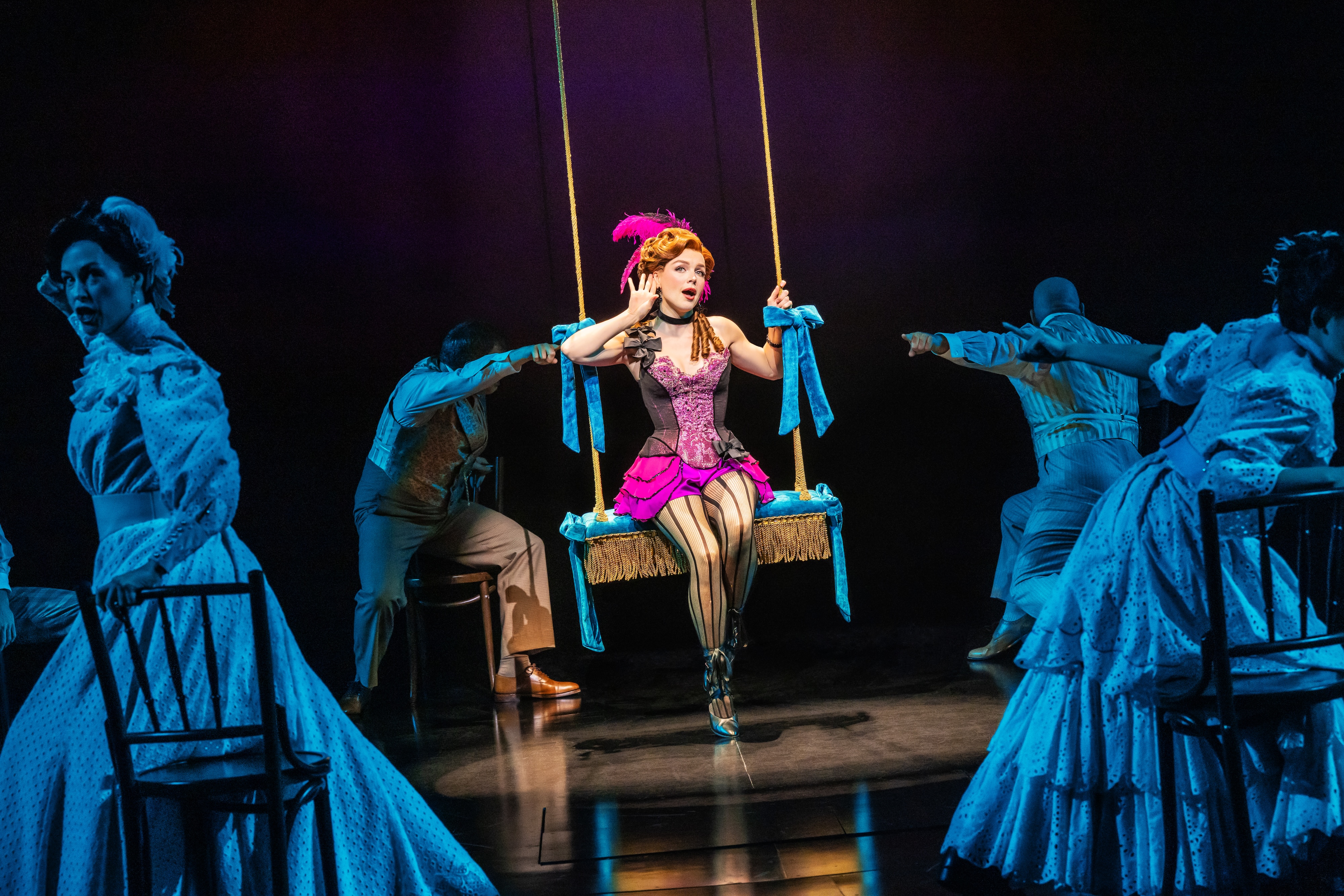
The decision to maintain the original 28-piece orchestrations pays enormous dividends. The music surges with grandeur yet remains deeply personal. Period-inspired costumes and lighting complete the aesthetic, shifting gracefully from sepia warmth to stark confrontation without overwhelming the story.
Joshua Henry is a revelation as Coalhouse Walker Jr., his towering presence matched by a voice of astonishing range and control. His “Make Them Hear You” reverberates like a cry for justice across the decades. Brandon Uranowitz brings humor and heart to Tateh, charting the immigrant’s transformation from desperation to creative triumph with exuberant sincerity. Caissie Levy is luminous as Mother, capturing her evolution from domestic certainty to self-awareness with quiet, affecting truth.
Nichelle Lewis’s Sarah is heartbreaking, and she sings “Your Daddy’s Son” with raw, aching vulnerability. Ben Levi Ross captures Younger Brother’s naivety and the fervent militancy with which he hurls himself into causes. Shaina Taub makes a sharper, funnier Emma Goldman this time around, with her vocals far stronger than last year. Overall, the cast imbues the piece with life and cohesion, embodying the full scope of America’s promise and pain.
If the City Center staging felt charged in the run-up to the 2024 election, this Broadway revival lands in a changed political landscape where the musical’s themes resonate not as warnings but as confrontation. A child’s question, “Why is everyone so angry?” now echoes through a country in turmoil. The production’s dreamlike flow, as if conjured from memory, reinforces that sense of history repeating itself before our eyes. More than a revival, this “Ragtime” feels like a reckoning—urgent, elegant, and profoundly alive.
Vivian Beaumont Theater at Lincoln Center, 150 W 65th Street, lct.org.



